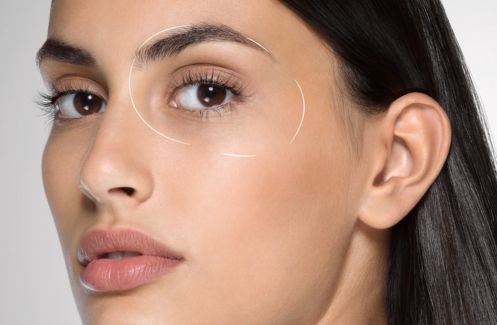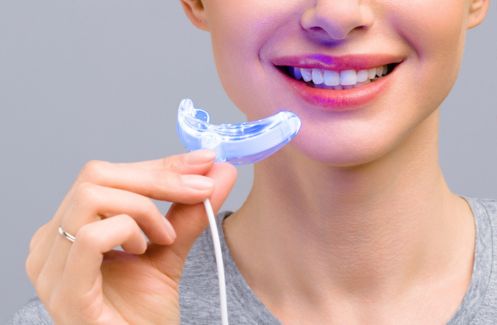There are some 850,000 Brits currently living with dementia and that figure is set to rise dramatically for our generation. But there are things you can do now to help reduce your chances of developing dementia later in life
The nation’s brain health is under the spotlight once again, as a new Finnish study shows that the use of benzodiazepine medication – including brand names such as Valium, Xanax and Tamazepam – increases risk of developing Alzeimher’s disease in later life.
Indeed, the UK’s ageing population means that 850,000 people in the UK are currently living with dementia, and someone is newly diagnosed with the condition every three minutes. Government estimates put the cost of dementia at a colossal £23 billion a year.
What’s more, one in four people will experience a mental health problem this year and in any given week, one in six is struggling with a problem such as anxiety and depression.
More than 1.7 million people access NHS services for serious mental health problems and almost a million are referred to psychological therapies for common mental health issues.
The stress epidemic
Research for Equazen, makers of clinically-proven omega brain health supplements, reveals we are struggling with epidemic levels of stress, with almost half (42%) those surveyed in new data just published saying they never switch off and eight out of ten adults admitted they feel frazzled.
The research, conducted on 1000 people in Spring this year by OnePoll, also found that our most common escapes for unwinding include, watching telly (54%), listening to music, (52%) and reading books or magazines (49%) – none of which give our brains any downtime.
Our brain health isn’t something we have no power over though. Here are five proven ways we can future proof our brain health. That is, keep our brains firing on all cylinders across our lifespans.
Step 1: Feed your brain
Studies confirm that high quality nutrient-dense diets are linked to better mental health in children and adults and shortfalls of specific nutrients are also linked to a greater risk of mental health issues.
Low levels of folate, zinc and magnesium are associated with a higher incidence of depressive disorders and lack of omega-3 fatty acids increases the likelihood of anxiety disorders.
‘One of the most obvious yet under-recognised factors in the development of mental health is nutrition,’ warned a recent report by the Mental Health Foundation.
‘There is a growing body of evidence indicating that nutrition may play an important role in the prevention, development and management of diagnosed mental health problems including depression, anxiety, schizophrenia, Attention Deficit Hyperactivity Disorder and dementia,’ the report concluded.
‘The brain is the most complex organ in the human body, so it’s hardly surprising that it needs the finest fuel, constant maintenance and an ideal environment to achieve peak performance,’ says Dr Emma Derbyshire, a leading public health nutritionist.
‘Modern life usually means grabbing something on the go and more often than not food picked up in a hurry or to satisfy hunger tends to be sugar laden and high in fat and not so high in nutrients and this can affect the brain’s processes and function,’ says Dr Derbyshire.
‘Ideally we need to plan ahead to make sure that we fill-up on healthy balanced meals, full of vitamins and minerals’.
A healthy balanced diet which is high in fresh fruit and vegetables, provides specific B-vitamins and clinically proven omega-3 fatty acids (see below for how) and taking supplements such as Equazen may all help to support brain function. For kids, try Children’s Chews £9.85 for 60 capsules and for adults, try Family Capsules £8.16 for 60 capsules.
Step 2: learn to love oily fish
Oily fish really is the fish that loves you back.
Including the likes of mackerel, kippers, trout, salmon, sardines and pilchards, these are an important and indeed the main source of omega-3 fatty acids in our daily diets.
Unfortunately, latest data from the UK National Diet and Nutritional Survey shows that oily fish intakes are in shortfall. For example, adults are presently eating around 56 grams a week. That’s less than half the recommended 140 grams weekly quota. Considering 1-2 serves of most oily fish will get you that, it’s not too much to ask.
The omega fatty acids found in oily fish are imperative for brain health.
For example, one such omega-3 fatty acid known as docosahexaenoic acid (DHA) provides the building blocks of the brain, nervous system and eyes and it also makes up around 40 per cent of the polyunsaturated fatty acids in the brain and 60 per cent of the PUFAs found in the retina.
Another fatty acid – eicosapentaenoic acid (EPA) – like DHA – is found in abundance in oily fish and is thought to play a key role in signaling between brain cells with clinical trials reporting mood benefits. EPA also has also been found to have anti-inflammatory and neuroprotective activity.
Worryingly, research reveals many of us are eating a diet dangerously short on the essential brain building fats,’ says Dr Derbyshire.
‘Both omega-3s and omega-6s are essentially fatty acids which the body cannot produce itself, so must be obtained from the diet – with oily fish being a critical dietary source.
‘For those who don’t eat fish or dislike its taste, clinically tested supplements such as Equazen should be considered.
Step 3: take a brain break
We often talk about multi-tasking as if it’s a badge of honour, a sign that we are so busy or important that we must make every moment count.
There is an assumption that high achievers must have a constantly busy mind. But the notion that a busy mind is a sign of a high intellect or effective decision making is a myth.
Many ancient civilizations developed teachings involving meditation and relaxation which they believed put them in touch with some high power or life force or enabled them to achieve deeper insight or understanding.
Today, we talk about the benefits of mindfulness, which focuses on non-judgmental awareness of feelings, emotions and our state of mind, but ultimately all are grounded in the same thing — the importance of giving our brains a break.
So rather than going through our lives on autopilot which should perhaps follow the lead of clinical mindfulness expert Jon Kabat-Zinn and explore the role of our conscious experiences – just sitting in complete quiet and training our minds to be more flexible and adaptable.
For example, in one study, taking time out was even found to improve productivity. The research, published in the journal of Conscious Cognition found that mindfulness meditation improved ‘brain-computer interface’ accuracy. That’s a fancy way of saying it increased the speed of brain signals to a particular external activity such as a computer cursor.
‘There is now growing evidence that giving our brains a break with relaxation techniques such as mindfulness and meditation can help relieve physical and emotional symptoms,’ says Dr Derbyshire.
‘We know that our body works best when we eat well and get plenty of rest, so it makes sense that the same is true of our brains.’
So turn off the tech, close your eyes, slow your breathing and let your mind wander. If thoughts or worries try to push their way to the front of your mind, acknowledge them, but don’t dwell on them. Instead, gently guide your mind away by focusing on your breathing, or gently releasing tension wherever you sense it.
READ MORE: Meditations for busy people
Step 4: Move, move, move (it doesn’t have to be that much!)
We are leading a much more sedentary lifestyle than our grandmothers. Smartphones, TVs, computer games, on demand programmes, sitting at a computer or laptop all day all affect the amount of time we spend moving around.
The health benefits of a physically active lifestyles are increasingly being documented. We now know for example, that being active can reduce our risk of many chronic conditions and this appears to extend to our brain health too.
Latest data in the UK shows that 21 per cent of men, and 25 per cent of women are classified as inactive and activity levels show a clear decline with age.
Exercise releases endorphins, which make us feel good, increase our mood and benefit our mental health. Indeed, the more we do, the better we are likely to feel.
But the good news is that physical activity can take many different forms from gardening and walking to even ironing and Hoovering the house with a minimum of just 20 minutes per week found to have mental health benefits in one study.
Step 5: balance your omegas
You’ve probably heard a lot about our need for omega 3 fatty acids.
It’s thought that our need for these essential fatty acids stems from early evolution – 600 million years ago the world was steeped in blue-green algae, which was abundant in omega-3s and smaller amounts of omega-6 and vitamins A and E.
Experts believe that it was access to an abundance of omega 3-rich seafood, shellfish and algae that fuelled human brain development, which is still the key nutrient needed for brain development today.
In the past it is thought that we evolved and indeed our brains originally thrived on diet abundant in seafood which would have provided a balance 1/1 ratio of omega-6 to omega-3.
Omega-6 fatty acids are other essential fats that come from such foods such as dairy, eggs, beef, pork and chicken. Omega-6 fatty acids are also found in vegetable oils, fried and processed foods.
As a result, this ratio is now thought to have been distorted to a ratio of 25/1 with rising consumption of vegetable oils pushing up our omega-6 intakes and under consumption of oily fish dragging drawing down our consumption of those essential omega-3s.
What you end up with is that our bodies have an abundance of omega 6 fatty acids and too few omega 3s, ruining this essential balance.
Flaxseed is sometimes suggested as a more palatable source of omega-3 than oily fish, but almost all the studies confirming benefits have focused on DHA and EPA, which are not found in flaxseed.
Flaxseed contains another omega-3, called alpha-linolenic acid (ALA), which our bodies have to turn into DHA and EPA, but this is dependent on high levels of specific enzymes and only a fraction — between 10% and 15% — is actually converted into these more accessible forms.
‘It really is a case of consumer beware when it comes to ensuring adequate intakes of omega-3,’ says Dr Derbyshire.
‘Presently omega-6 intakes are sky high whilst omega-3 intakes are worryingly low. Coupled with this as flaxseed research confirms, not all omega-3s are equally useful.
‘Bearing this in mind if we are looking to restore the omega balance we may well need to turn to supplements.
‘However, when it comes to omega-3 supplements benefits are dependent on having the right dose and the right fatty acids, and unique formulations’.
The Equazen range of supplements is the result of many years of investment in science, and it is the brand’s unique evidence-based formulation which sets it apart from other omega products. And the specific blends of omega-3 and omega-6 used in each Equazen formulation are tailored to meet our needs at key stages of life. Equazen’s products have been extensively researched, with clinical trials in the UK, Australia and Sweden, along with a number of ongoing studies. For more information see equazen.co.uk
This editorial has been sponsored in part by Equazen.
Related Healthista content:
For BRAIN health read on – and on
25 surprising ways to improve your brain health
Brain training: 7 surprising hacks to boost your mind
How CARBS can keep your brain healthy
Like this article? Sign up to our newsletter to get more articles like this delivered straight to your inbox.

















































































































